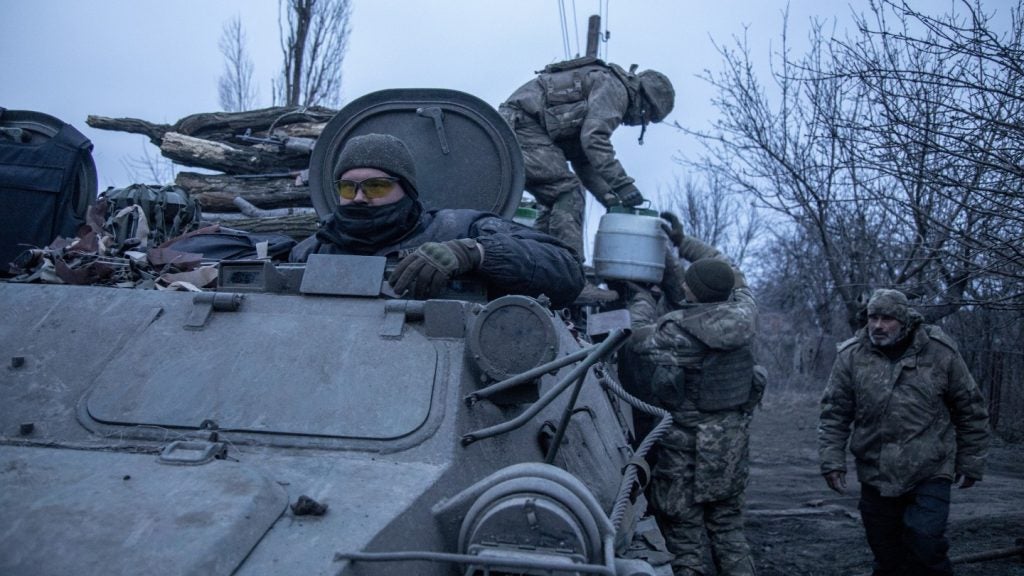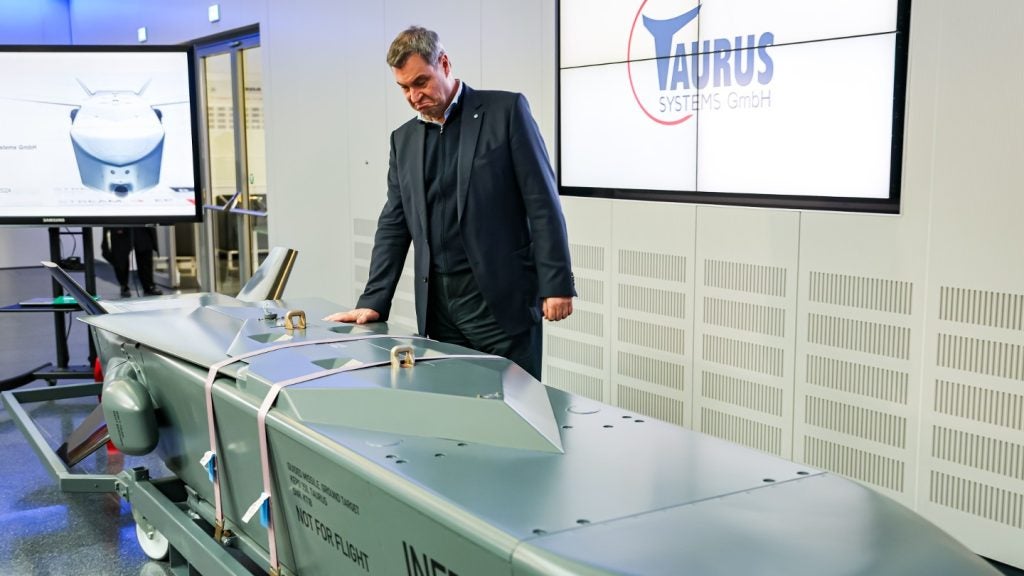The refusal by French President Emmanuel Macron to rule out the deployment of Western troops to Ukraine has sparked criticism from the UK and Germany, support from the Baltics, threats from Russia – and close examination of military personnel already deployed in Ukraine.
Speaking after a conference in Paris about support for Kyiv, Macron said there was “no consensus” on sending ground troops to Ukraine in an “official manner” but that “nothing was excluded”.
What has gone under the radar is that Macron’s remarks point to an already existing – and unofficial – Nato military presence in Ukraine, according to Christopher Granville, TSL Lombard’s managing director of global political research.
“There was a key phrase that has been widely overlooked. Macron spoke about ‘not excluding the possibility of sending grounds troops to Ukraine in an official and avowed (French: assumée) way’,” Granville says. “The words clearly imply what is already well known but never openly spoken about by officials: there have long been unacknowledged military personnel on the ground in Ukraine from France, the UK and US.”
Moscow has reacted angrily.
Kremlin officials warned that deploying Western troops to Ukraine would inevitably lead to Nato-Russia conflict, while Sergei Naryshkin, head of Russia’s Foreign Intelligence Service (SVR), said Macron’s comments were “extremely dangerous” and irresponsible.
Tough-talking Macron ignites Franco-German spat
Macron has not boosted his popularity among most Nato allies, either.
During a visit to the Czech Republic, Macron called on other European nations “not to be cowards” in the defence of Ukraine.
He also stood squarely behind his previous comments about troop deployment.
“We don’t need really, from my perspective at least, talk about boots on the ground or having more courage or less courage,” German Defence Minister Boris Pistorius responded during a press conference with his Swedish counterpart Pål Jonson. “This is something which does not really help solve the issues we have when it comes to helping Ukraine.”
Macron’s self-styled war leader projections will particularly rankle the German government and military considering Berlin has given far more weapons to Ukraine than Paris.
His fighting talk has also been backed up with minimal action.
In Prague, Macron made no financial pledges to support Czech President Petr Pavel’s initiative of purchasing 800,000 non-EU shells for Kyiv, an attempt to plug the ammunition gap in Ukraine.

French defence minister Sebastien Lecornu has, however, announced that three French companies will soon manufacture drones, land equipment and “perhaps ammunition in the future” on Ukrainian soil.
The companies remain unnamed but are believed to include tank maker KDNS.
Granville believes Macron’s strategy “has to do with possibly sending military personnel to Ukraine in non-combat roles such as de-mining and training”.
Pavel seemed open to this idea in his comments made after Macron’s speech in Prague, although the Czech President reiterated that sending troops to actually fight against the Russian army was out of the question.
Russia infiltrates German military communications
Much to the Kremlin’s delight, an additional factor putting strain on Nato relations is the leak to Russia of a top-secret call involving German air force officers who said UK troops were “on the ground” in Ukraine.
The 38-minute recording, first released by Kremlin-controlled news channel RT on 1 March, also captures senior Luftwaffe officers discussing how to use Taurus missiles to blow up the Kerch Bridge, which connects Russia with occupied Crimea – without direct involvement from German military personnel.
Germany’s Ministry of Defence (MoD) has resolutely said that “it was not a leak”, as an MoD spokesperson tells Army Technology.
“The incident was an espionage attack by Russia,” they say. “Our certified means of communication are fundamentally secure if all specifications are applied correctly. The decisive factor for the current incident was an individual application error.”
Pistorius said the breach came after the German official dialled into the WebEx call from a hotel room in Singapore.
Chancellor Olaf Scholz has so far firmly rejected the idea of Berlin sending the long-range Taurus missiles to Kyiv, which cross “a red line for Germany”, according to Granville.
“A lot of the talk [in the recording] involved how to camouflage German military personnel in the company that manufactures Taurus missiles,” Granville tells Army Technology. “One of the potential solutions discussed was to outsource to the British – who are already on the ground in Ukraine – the assistance that Ukrainian armed forces would need in mounting the missiles on planes.”

Following the mishap, Germany’s military is under heightened pressure to rectify its reputation as a Nato leader in Europe.
But “guessing Germany’s move with the Taurus missiles remains speculative”, according to Wilson Jones, defence analyst at GlobalData.
“France and Macron upping their rhetoric about other aid, such as the troops [deployment] comment, will pressure Germany to take a firmer stand,” Jones tells Army Technology.
Are US and UK troops already in Ukraine?
Leaked audio aside, the presence of European or Nato troops in Ukraine has also been laid bare by the UK’s response to Macron’s comments.
“There was an interesting detail in the UK formulation. In contrast to most countries who ruled out any such deployments altogether (e.g. Germany, Spain, Italy, even Poland), the British statement referred instead to the absence of plans to make such deployments ‘on any substantial scale’,” Granville says. “The implication? Smaller-scale deployments are conceivable – and, in practice, have already been made.”
Analysts expect the activities of this deployed UK contingent involve assistance with the MBDA-manufactured ‘Storm Shadow’ cruise missiles, of which the MoD sent an undisclosed number to Ukraine in May 2023.
Any deployed French troops are likely doing the same with the equivalent ‘Scalp’ missiles.
The UK and France have used their donations of the Storm Shadow/Scalp missiles to ramp up pressure on Germany to deploy Taurus missiles, which have a range of nearly 500km.
Speaking on a trip to Berlin, former UK Prime Minister-turned-Foreign Secretary David Cameron said Germany supplying Taurus to Ukraine would not escalate the war with Russia.
The UK has since pledged to send more than 10,000 drones to Ukraine.
The US, meanwhile, has maintained the narrative that it has no troops on the ground.
In his State of the Union speech on 7 March, President Biden said: “There are no American soldiers at war in Ukraine, and I am determined to keep it that way” while reiterating calls to send weapons to Kyiv.
The latest Foreign Military Financing proposal, however, represents the lowest US-Ukraine aid package since 2018, committing just $95m, compared to $325m in 2023/24.
Poland admits Nato deployments
With the pretence about Nato presence in Ukraine evaporating, calls for military deployments to Ukraine are growing stronger in Eastern Europe and the Baltics, where Putin’s shadow looms largest.
As the countries guarding Nato’s eastern flank, Poland, Latvia, Estonia and Lithuania would be the first line of defence against any escalated Russian aggression and have consequently been the most vocal.
Poland may not have supported Macron’s notions of soldier deployment, but Polish foreign minister Radoslaw Sikorski caused controversy on Friday (8 March) when he admitted that “Nato military personnel are already in Ukraine”.
“These countries know who they are, but I can’t disclose them. Contrary to other politicians, I will not list those countries,” Sikorski added.
Analysts have dissected this as a thinly veiled reference to Scholz, who – prior to the intercepted Luftwaffe call – said it was not possible for Germany to supply Taurus missiles to Ukraine because it would require accompanying military personnel “as in the case of the French and British after they supplied their cruise missiles to Ukraine”.
Lithuanian Foreign Minister Gabrielius Landsbergis, meanwhile, expressed support for Macron, saying his statements were “well worth considering”, as well as calling on Germany to send Taurus missiles to Ukraine.
“We are an open book to Putin, he expects that tomorrow will bring neither Taurus nor ATACMS nor even sufficient amounts of ammunition”, Landsbergis said. “He wakes up every day knowing there will be no strategic dilemmas that would shift his calculations, either on the battlefield or beyond.”
Estonian Prime Minister Kaja Kallis has added that European leaders should discuss all possibilities, including how best to further support Ukraine.
“I think it is also the signals that we are sending to Russia, that we are not ruling out different things,” Kallas told Politico’s ‘Power Play’ podcast. “Because all the countries have understood that we have to do everything so that Ukraine wins and Russia loses this war.”
Despite these appeals – and Poland’s admission – Nato’s military presence in Ukraine looks unlikely to be bolstered.
Even if the US, UK and France admit to the current military presence, full ground troop deployment to even the Baltics, let alone non-Nato member Ukraine, remains a distant outcome.
When asked in what scenario he could potentially foresee Nato ground troops deployed, Jones responds: “[Deployment to the Baltics] would be an escalation to Russia, either in response to some challenge, or a challenge in and of itself. [Deployment to Ukraine] I could only see happening if Nato members enter the war.”









